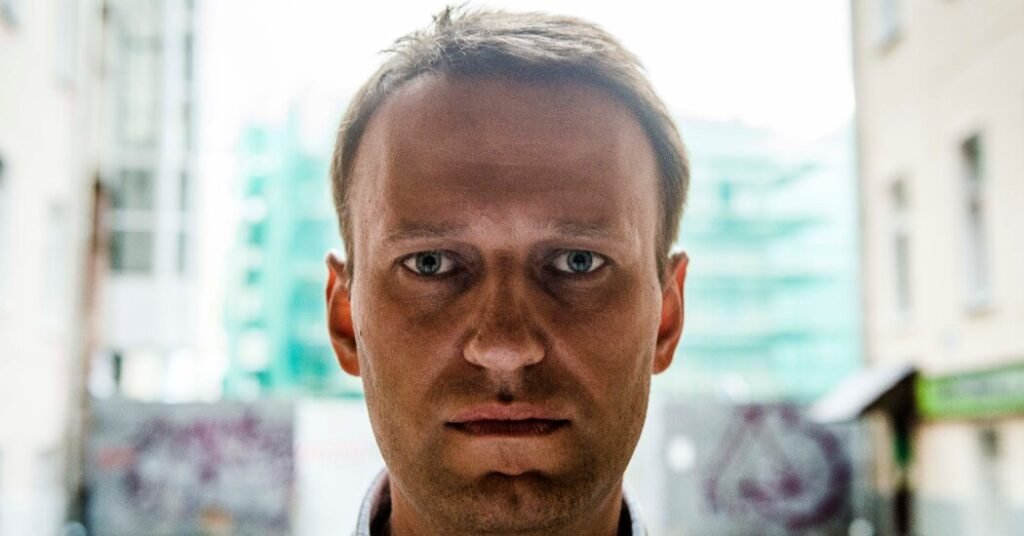Aleksei A. Navalny, an anti-corruption activist who for more than a decade led the political opposition in Russia to President Vladimir V. Putin, died Friday in a prison inside the Arctic Circle, Russian authorities said.
His death was announced by Russia’s Federal Penitentiary Service, which said Mr Navalny, 47, fell unconscious on Friday after taking a walk to the prison where he was transferred late last year. He was last seen on Thursday, when he appeared in court via video link, smiling from behind the bars of a cell and joking.
Leonid Volkov, Navalny’s longtime chief of staff, said he was not yet ready to accept the news that Mr Navalny was dead. “We have no reason to believe state propaganda,” Volkov wrote on social platform X. “If this is true, then it’s not ‘Navalny is dead’, but ‘Putin killed Navalny’ and that’s all.” But I don’t trust them one bit.”
Mr Navalny had served multiple sentences that would likely have kept him in prison until at least 2031 on charges that his supporters say were largely fabricated in an attempt to silence him. Despite increasingly harsh conditions, including repeated periods of solitary confinement, he maintained a social media presence, while members of his group continued to publish investigations into Russia’s corrupt elite from exile.
Mr Navalny was sentenced to three-and-a-half years in prison in February 2021 after returning to Russia from Germany, where he was recovering from nerve agent poisoning the previous August. In March 2022, he was sentenced to nine years in prison for embezzlement and fraud in a trial that international observers denounced as “politically motivated” and a “fraud.” And in August 2023, he was sentenced to 19 years in prison for “extremism”.
Mr Navalny had effectively returned from the dead after being poisoned in 2020 and had gone on multiple hunger strikes to improve his treatment, with many of his supporters believing him to be invincible.
During his detention, Mr. Navalny was repeatedly placed in solitary confinement and complained of serious illnesses. In December, he disappeared for three weeks while being transported to a penal colony 40 miles north of the Arctic Circle.
Mr Navalny has been a staunch critic of Mr Putin, a former KGB officer whom he accused of siphoning the country’s oil profits to enrich his friends and entourage in the security services. Mr Putin’s political party, he said, was a party of “crooks and thieves” and accused the president of trying to turn Russia into a “feudal state”.
Mr Navalny was known for his innovative tactics in fighting corruption and promoting democracy. Defying expectations, he has deftly used street politics and social media to build a persistent opposition movement, even as much of Russia’s independent media has been suppressed and other critics driven into exile or killed in unsolved murders.
In the years before Russia invaded Ukraine, many of Mr. Navalny’s associates, and in some cases their relatives, were arrested or forced into exile.
Before his reported death, he was Mr Putin’s most prominent critic still standing in Russia, at a time when the president has charted a path to stay in power until at least 2036.
Mr Navalny is believed to have been physically assaulted at least twice before: a suspected poisoning attempt while in prison in 2019. and an attack in 2017 in which someone threw a green liquid in his face, nearly blinding him.
He had spoken openly about the possibility of being murdered.
“I try not to think about it too much,” he said in an interview with CBS News in 2017. “If you start thinking about what kind of risks I’m in, there’s nothing you can do.”
Mr Navalny fell violently ill and fell into a coma on August 20, 2020, shortly after boarding a flight from Siberia, where he had met with opposition candidates for local office.
He said the poison had been planted in his underwear at his hotel shortly before he boarded the plane. The flight made an emergency landing in the Russian city of Omsk, where doctors for two days resisted his wife’s pleas to be flown to Germany for treatment.
Mr Navalny was eventually evacuated to Berlin by air ambulance arranged by the foundation of a film producer based there. Just over a week later, the German government announced that he had been poisoned with a nerve agent from the highly potent Novichok family of toxins. The evidence, German officials said, was “indisputable.”
Russian officials had previously deployed a low-level harassment campaign against Mr. Navalny. He was often arrested and jailed for short spells, usually for minor offenses related to protesting without a permit.
Mr. Putin has barely mentioned Mr. Navalny by name and the state media has consistently ignored him throughout his decade-long anti-corruption campaign. However, Mr Navalny, a young, messy politician, has found a base of support in the Russian middle class, and this has clearly irked the Kremlin.
Dismissing him as an unpatriotic jackass, the Kremlin has at times seemed willing to overlook his criticisms to give Mr. Putin the anointing of running a government that tolerates dissent. The short detentions have allowed Russian authorities to keep Mr Navalny out of sight of major events, such as organized protests, while avoiding criticism of harsh treatment that could make him a martyr.
Despite the attacks and prison terms, Mr. Navalny persevered, he said, out of a desire to change the course of his country and not let down the people who worked with him. He was angry with what he called Mr Putin’s inner circle and the security services that protected him.
“I’m doing this because I hate these people,” he had said in an interview with the New York Times in 2011, before he became famous.

